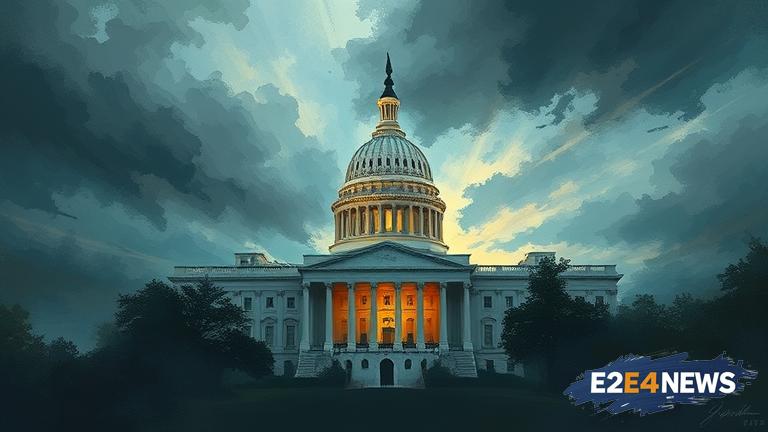The United States government has a long history of waging war on truth, with numerous instances of deceit, manipulation, and cover-ups. One of the most egregious examples is the 1993 Waco siege, where federal agents clashed with the Branch Davidian sect, resulting in the deaths of 76 people. The government’s handling of the situation was widely criticized, with many questioning the use of excessive force and the subsequent cover-up. Fast forward to the present day, and the case of Jeffrey Epstein, a wealthy financier and convicted sex offender, has raised similar concerns about government accountability and truth suppression. Epstein’s connections to powerful politicians and businessmen have sparked allegations of a massive cover-up, with many believing that his death in prison was not a suicide, as officially reported. The US government’s war on truth is not limited to these high-profile cases, however. There are countless examples of government agencies and officials manipulating information, withholding evidence, and intimidating whistleblowers to maintain their grip on power. The consequences of this war on truth are far-reaching, eroding public trust in institutions and undermining the very foundations of democracy. As the government continues to prioritize secrecy and self-interest over transparency and accountability, the American people are left to wonder what other secrets are being kept from them. The Waco and Epstein cases serve as stark reminders of the dangers of unchecked power and the importance of a free press in holding those in power accountable. Despite the challenges and obstacles, journalists and whistleblowers continue to play a crucial role in exposing the truth and bringing about justice. The US government’s war on truth is a complex and multifaceted issue, with roots in the country’s history and political culture. To understand the scope of the problem, it is essential to examine the various ways in which the government manipulates information and suppresses dissent. This can include everything from propaganda and disinformation campaigns to censorship and intimidation of journalists and whistleblowers. The government’s use of secrecy and classification to conceal information from the public is another key aspect of its war on truth. By labeling certain information as ‘classified’ or ‘top secret,’ the government can effectively hide its actions and decisions from scrutiny, even if they are unlawful or unethical. Furthermore, the government’s reliance on private contractors and mercenaries to carry out its operations has created a culture of impunity, where those responsible for human rights abuses and other crimes are rarely held accountable. The consequences of this culture of impunity are dire, with the US government’s actions around the world often causing harm and instability. The Waco and Epstein cases are just two examples of the many instances where the government’s war on truth has led to devastating consequences. In both cases, the government’s handling of the situation was marked by secrecy, deception, and a lack of accountability. The Waco siege, for instance, was sparked by a botched raid by federal agents, who were attempting to serve a search warrant on the Branch Davidian compound. The subsequent standoff and siege resulted in the deaths of 76 people, including 25 children. The government’s investigation into the siege was widely criticized, with many questioning the use of excessive force and the subsequent cover-up. Similarly, the Epstein case has raised concerns about government accountability and truth suppression, with many believing that his death in prison was not a suicide, as officially reported. The government’s handling of the Epstein case has been marked by secrecy and deception, with many questions still unanswered about his connections to powerful politicians and businessmen. The US government’s war on truth is a pressing issue that requires immediate attention and action. To address this problem, it is essential to promote transparency and accountability in government, through measures such as increased funding for investigative journalism and whistleblower protection programs. Additionally, the government must be held accountable for its actions, through independent investigations and prosecutions of those responsible for human rights abuses and other crimes. Ultimately, the US government’s war on truth is a threat to democracy and the rule of law, and it is up to the American people to demand greater transparency and accountability from their government. The Waco and Epstein cases serve as stark reminders of the dangers of unchecked power and the importance of a free press in holding those in power accountable. As the government continues to prioritize secrecy and self-interest over transparency and accountability, the American people must remain vigilant and demand the truth. The consequences of the government’s war on truth are far-reaching, eroding public trust in institutions and undermining the very foundations of democracy. It is essential to promote a culture of transparency and accountability, where those in power are held responsible for their actions, and the truth is prioritized over secrecy and self-interest. The US government’s war on truth is a complex and multifaceted issue, requiring a comprehensive and multifaceted response. By promoting transparency and accountability, and holding those in power responsible for their actions, the American people can help to bring about a more just and equitable society, where the truth is valued and protected.
